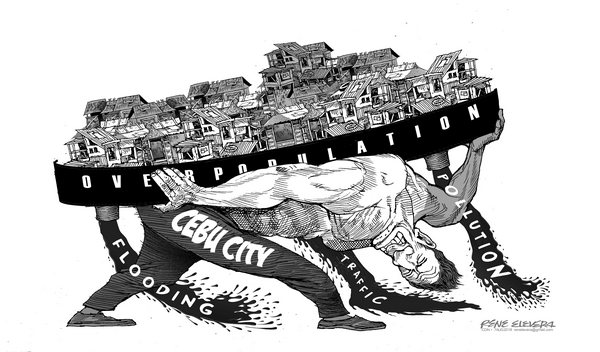
With Cebu City Hall and the Capitol officially confirming its land swap deal for lots covered under Provincial Ordinance 93-1, one can only hope that it won’t signal an invitation for other people outside the city to move in and settle in these areas.
In fact, whatever plans the city government has for the settlers should take into consideration the listing and identification of families who have occupied these lots for decades and not those who happen to hear about the land swap deal and think they can move in as well.
For that is the root of the problem that the previous administrations in the city government, and the provincial government tried to solve, only to be waylaid by comments on the original land swap deal that one former City Hall official deemed grossly disadvantageous to Cebu City.
This unfortunate development was revisited by Cebu City Mayor Tomas Osmeña when he asked the 93-1 settlers not to vote for his erstwhile protégé turned political nemesis Michael Rama whom he blamed for the collapse of the first land swap proposal.
Though Vice Mayor Edgardo Labella, who is seen to contest the mayoral seat in next year’s elections, pointed out that the council unanimously passed what would become the official land swap deal between the city and province, only the most naive would believe there are no political benefits to reap for approving this arrangement for both sides.
There are some things that need to be clarified in this land swap deal. Will the city collect payment from the families for any unpaid or partially paid lots and if so, what are the terms?
If the city offered the lots formerly covered under 93-1 free with no strings to the families would this ensure, as pointed out above, that it won’t entice other people from the countryside or even outside Cebu to make their homes in these lots?
It is understood and hoped that the families who somehow had paid their lots in full and received certificates from the previous Capitol administration won’t resent those who had been given their lots for free under the land swap deal.
The deal is by no means an end-all solution to the perennial problem of squatting or adverse occupancy of those who believe that all land is free and they can move in and occupy any place they please without considering whether someone or the local government owns the site they built their houses on.
Cebu City or any local government for that matter can only accommodate so much people in its land area without suffering from overpopulation and the problems it causes such as traffic, flooding, and unabated pollution.